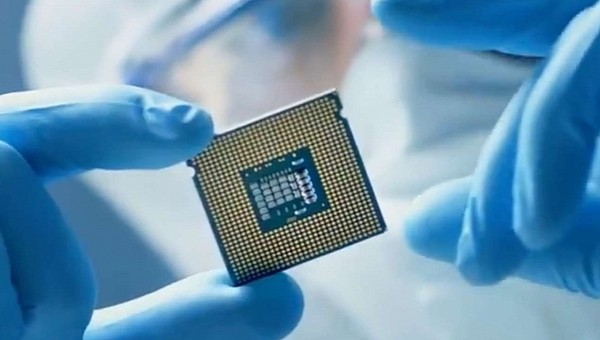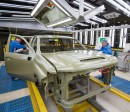The chip shortage seems to be easing off, with the most optimistic industry experts believing that the struggle could eventually come to an end this year.
And while it’s hard to make an accurate assumption right now, especially due to the uncertainty that’s still impacting chip production, Intel believes that the world would have a much more difficult time addressing the cause of the crisis in the first place.
Speaking at the World Economic Forum, Intel CEO Patrick Gelsinger pointed to the extreme reliance on Asian production power for the chips, explaining that Europe and the United States have lost traction in the manufacturing business.
Gelsinger also reiterated the stats that show the investments in chip production happened mostly in Asia. 30 years ago, the Intel CEO said, Europe and the United States were the two markets that spearheaded the production of semiconductors, as they both accounted for nearly 80 percent of the entire capacity.
Today, Asia is the one controlling this share of the market, with Europe and the U.S. responsible for supplying only 20 percent of the chips used by companies across the world.
This is the problem that needs to be tackled more efficiently, the Intel executive explained. Investing in production capacity in Europe and the United States would help prevent another semiconductor crisis, as the supply chain would no longer be hit as hard as it was in 2020 once a specific region is impacted by a major problem like the restrictions that happened in China.
However, doing this isn’t going to be easy. Intel’s CEO believes that putting Europe and the United States back on the semiconductor production map is going to take decades, despite all the investments that are happening these days on this front.
In other words, Gelsinger believes that the world would continue to rely on its dependence on Asian chip production for a little longer, and any potential supply chain problem happening in the region could eventually cause new struggles for companies in the rest of the world as well.
Both the United States and Europe are offering massive incentives to encourage chipmakers to expand production in the region and build new facilities. In the United States, the CHIPS Act is providing companies with hefty subsidies, and Intel is one of the biggest names planning to expand local production.
Most industry analysts warn that expanding production capacity can’t happen overnight despite all these investments, especially as the new factories should get their first production lines up and running in 2024. As a result, the consensus right now is that aligning production with the demand would still require a few more years, meaning that the constrained chip inventory could remain a challenge for local carmakers for a little longer.
Speaking at the World Economic Forum, Intel CEO Patrick Gelsinger pointed to the extreme reliance on Asian production power for the chips, explaining that Europe and the United States have lost traction in the manufacturing business.
Gelsinger also reiterated the stats that show the investments in chip production happened mostly in Asia. 30 years ago, the Intel CEO said, Europe and the United States were the two markets that spearheaded the production of semiconductors, as they both accounted for nearly 80 percent of the entire capacity.
Today, Asia is the one controlling this share of the market, with Europe and the U.S. responsible for supplying only 20 percent of the chips used by companies across the world.
This is the problem that needs to be tackled more efficiently, the Intel executive explained. Investing in production capacity in Europe and the United States would help prevent another semiconductor crisis, as the supply chain would no longer be hit as hard as it was in 2020 once a specific region is impacted by a major problem like the restrictions that happened in China.
However, doing this isn’t going to be easy. Intel’s CEO believes that putting Europe and the United States back on the semiconductor production map is going to take decades, despite all the investments that are happening these days on this front.
In other words, Gelsinger believes that the world would continue to rely on its dependence on Asian chip production for a little longer, and any potential supply chain problem happening in the region could eventually cause new struggles for companies in the rest of the world as well.
Both the United States and Europe are offering massive incentives to encourage chipmakers to expand production in the region and build new facilities. In the United States, the CHIPS Act is providing companies with hefty subsidies, and Intel is one of the biggest names planning to expand local production.
Most industry analysts warn that expanding production capacity can’t happen overnight despite all these investments, especially as the new factories should get their first production lines up and running in 2024. As a result, the consensus right now is that aligning production with the demand would still require a few more years, meaning that the constrained chip inventory could remain a challenge for local carmakers for a little longer.






